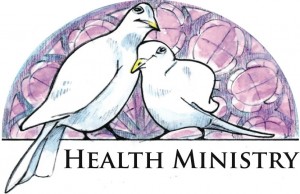 High blood pressure, or hypertension, is a disease that affects many Americans whether they know it or not. Hypertension is known as the silent killer because often there are no symptoms. High blood pressure cannot be cured. It is treated through a variety of means.
High blood pressure, or hypertension, is a disease that affects many Americans whether they know it or not. Hypertension is known as the silent killer because often there are no symptoms. High blood pressure cannot be cured. It is treated through a variety of means.
Blood pressure is the force that blood moving through the arteries puts on the artery walls. High blood pressure can damage the artery walls and decrease the blood flow to body tissues. The pressure on the artery walls when the heart is pumping blood is called the systolic pressure. The pressure on the artery walls when the heart is between beats is called the diastolic pressure. Blood pressure is recorded with these two numbers; the top number is the systolic pressure and the bottom number is the diastolic pressure.
Managing your blood pressure is critical because it is the number one risk factor for stroke. Strokes are caused by atherosclerosis which is a build- up of plaque in the lining of the artery walls. It can slow or block blood flow to the brain. It can also cause the artery walls to weaken and rupture which causes bleeding into or around the brain.
The most effective way to prevent stroke is to manage your blood pressure. You can work towards controlling your blood pressure by watching what you eat and drink, regular exercise, controlling weight, not smoking and taking medication as prescribed by your doctor.
Another way to reduce your risk of stroke is to reduce stress. Modern day Americans live very busy, frenzied lives. Job expectations combined with family responsibilities can be overwhelming. Finding ways to relax throughout the day can help maintain normal blood pressure levels. Spiritual practices, such as prayer and devotional readings can soothe frenzied nerves. A few minutes in the morning or during lunch break might make a difference. How we decrease and maintain normal blood
pressures is unique to each and every one of us. What is important is finding the best way for you.
If you should experience extreme elevated blood pressure levels or have signs and symptoms of a stroke such as sudden weakness or numbness of the face, arm or leg especially on one side of the body, sudden confusion, difficulty speaking or swallowing, trouble seeing in one or both eyes, trouble walking, dizziness, loss of balance or coordination, and sudden severe headache with no known cause, it is imperative that you get help immediately, even if the symptoms seem to resolve. The consequences of ignoring your blood pressure and the symptoms of stroke are simply too high.
~Donita Robards, RN, Parish Nurse
